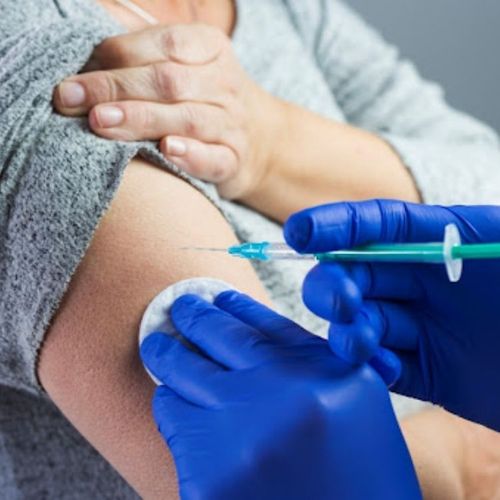The US Food and Drug Administration (FDA) has approved the first vaccine that protects against the human papillomavirus (HPV), known to cause most cervical cancers. The vaccine, Merck & Co.'s Gardasil, was approved for girls and women ages nine to 26. The National Advisory Committee on Immunization Practices will now decide whether to include the vaccine in routine vaccination schedules.
Impressive Results
In a two-year study that involved more than 12,000 women, the vaccine was found to be 1o0% effective against four types of human papillomavirus-HPV 16 and HPV 18, which are responsible for approximately 70% of cervical cancer cases, and HPV 6 and HPV 11, which cause 90% of genital wart cases.
The study also showed that the Gardasil vaccine was 100% effective against vulvar and vaginal precancerous lesions caused by HPV 16 and HPV 18.
"This study shows that the prophylactic vaccine developed to prevent cervical cancer could actually also prevent vulvar and vaginal cancer as well," says Dr. Jorma Paavonen, the author of the study and chief physician in the department of obstetrics and gynecology at the University of Helsinki in Finland.
Reaction
The FDA action was hailed by experts. "It's huge!" says Dr. Michael A. Bookman, director of medical gynecologic oncology at Fox Chase Cancer Center in Philadelphia. "The thing that is incredible is the global possibilities. In the US, we have done a good job of implementing screening and testing. In the rest of the world, this is a much more serious problem."
"Today is an important day for public health and for women's health, and for our continued fight against serious life-threatening diseases like cervical cancer" says Alex Azar, deputy secretary at the US Department of Health and Human Services.
Lifesaving Potential
Merck has said that this vaccine has the potential to reduce the annual number of new cervical cancer cases around the world from 500,000 to approximately 150,000, and to reduce the number of deaths by more than two-thirds to approximately 90,000.
Officials at Merck have said that the vaccine would work best when given to girls before they become sexually active.
Most experts agree that the earlier the vaccine is given, the better. "Young kids respond better to vaccines. They're immunologically poised to respond better" Bookman explains.
"You also want to get the vaccine into girls and boys before they are sexually active-not just intercourse but oral sex and any way the virus might spread," he adds.
"This is an opportunity to get in and educate people at an early age, have them accept the vaccine as part of their culture," Bookman says. Like many other vaccinations that are given in a series, Gardasil will require three shots during the course of six months.
The Future
Despite the vaccine, women will still need to be screened for cervical cancer that is caused by other types of HPV, experts note. This is most often accomplished by a Pap test, which is still a very accurate indicator of a woman's cervical condition.
